

Discover more from The Freedom Analects
Sovereignism Part 8: Everywhere and Nowhere
A 12-part essay series exploring the disruption of the nation-state and the subsequent amplification of individual sovereignty during the Digital Age.
This series is loosely based on the 1997 masterwork: The Sovereign Individual.
“Exodus believes in empowering the individual to control their wealth and financial destiny and has provided financial support for the research and writing of this series. Exodus has no editorial control over the content of these writings.”
In Part 7, we explored how property and money interface with the mind, and how each is a mutually influential pattern on the other according to Material Engagement Theory. For this reason, the corruption of money, and violations of property more generally, are proposed to be catalysts of mass-psychoses. We also looked at why there is good reason to be hopeful despite the global fiat fiasco and attendant mass-psychosis in which we find ourselves embroiled today. Thankfully, socioeconomic systems based on freedom tend to outcompete those premised on fiat. Here in Part 8, we will take a look at totalitarianism—the largest and most catastrophic mass-psychosis of all—and its relationship with the “everywhere and nowhere” nature of market dynamics: manifestations of humanity’s collective mind. Markets are “minds of minds” and, as we will see, sovereignists are those who choose to free their minds and take full ownership of themselves by migrating to coercion-proof money.
The Market: A Universal Process
“In my philosophy there is no difference between the physical and the spiritual; these are absolutely out of date categories. It is all process; it isn’t stuff on one hand and form on the other… it is pattern, life is pattern—it is a dance of energy.”—Alan Watts
All phenomena in the universe exist in flux; in a “stateless state” of continuous change—an endless dance of energy. Sometimes, certain events can appear to be static—a mountainous landscape, for instance—but viewed through the “God’s Eye” view of geologic time, even mountains are just waves of energy coursing through terrestrial features. Like waves on the ocean, mountains are engaged in a constant exchange of energy with their surroundings, albeit on a much longer time scale. Within the sphere of human action, this universal process of ceaseless exchange is instantiated in the marketplace. Humans not only trade goods and services, and the ideas on which they are based, but they also imitate one another’s actions in waves of mimetic exchange—imitative patterns of action directly responsible for the development and propagation of ritual, culture, and social institutions. Indeed, this human capacity for cultural replication and exchange is one of our defining characteristics:
Mimesis—the etymological root of mimicry—allows humans to accumulate procedural learnings from generation to generation, steadily enriching the treasury of knowledge and letting us civilize ourselves beyond conditions of depravity. The problem with this unique human capacity for mimetic exchange and imitation is that when coercion or violence is initiated, it can echo onward virtually without end. Herein lies the problem with fiat: under a (more or less) veiled threat of force, fiat involves spurring human action “because an authority said so.” When action is induced in this way, the fundamentally free nature of individuality is violated, and those moved by fiat inevitably devise ways to resist, undermine, or obtain retribution against their fiat-tongued authorities. Mimetic exchange ensues, causing blood feuds and waves of reciprocal vengeance.
Declaration by fiat is the essence of statism. As covered previously in this series, political statism is a mass-psychosis premised on the profitability of property violation. This psychotic mode of human organization—a watered-down version of outright slavery—is dependent on a general ignorance and passivity among people. Since property violation is the prime enterprise of statism, it runs counter to the voluntarily established channels of free exchange comprising the organic macrovasculature of the marketplace. All declarations by fiat result in a reciprocal breakdown of cognitive integrity, both individually and collectively, or between minds and markets. All attempts to reduce the infinite dynamism of markets to a static, statist formula is inevitably destructive to value. As Robert Pirsig poeticizes the reality of free markets:
“A free market is a Dynamic institution. What people buy and what people sell, in other words what people VALUE, can never be contained by any intellectual formula. What makes the marketplace work is Dynamic Quality. The market is always changing and the direction of that change can never be predetermined.”
When intervention by fiat is imposed on markets and market actors, the dynamic discovery processes necessary for healthy (distributed) cognition are disturbed and the mental fortitude of both minds and markets is damaged. As we will see, fiat causes a cognitive schism in the minds of individuals and ensembles alike. When an assertion from a self-proclaimed authority is put forth as an override on freely discovered truth, the rottenness of deceit infects the intersubjective fabrics of human interrelations. The essence of fiat is the following unjust and absurd fallacy: that some authority has an ownership claim on you superior to your own self-ownership. Fiat is a contradiction of human nature, and its promulgation is a socioeconomic pathology. This is why the state has always desperately needed the support of intellectuals as “opinion-molders” of society, to justify its rake, and serve as a “psychological bandage” to cover up its deceit.
However, in the long-run, the parasitic pursuits of statism have repeatedly proven to be self-defeating. Hence the recurrent “boom and bust” cycles of rising and falling civilization across history. As any Bitcoiner can surely infer: “Break the money, break the world.” When property rights are sufficiently violated, the parasitic state kills its productive free market host, thus killing itself in the process of interrupting market processes. A quick study of history proves that each state that has ever existed ultimately saws off the branch on which it rests—the wealth-generating free market. As Mises defines the market in Human Action:
“The market is not a place, a thing, or a collective entity. The market is a process, actuated by the interplay of the actions of the various individuals cooperating under the division of labor. The forces determining the—continually changing—state of the market are the value judgements of these individuals and their actions as directed by these value judgements. The state of the market at any instant is the price structure, i.e., the totality of the exchange ratios as established by the interaction of those eager to buy and those eager to sell.”
A processual forum of free exchange, the market exists “everywhere and nowhere.” Even when states intervene into free market processes, they cannot eliminate them, but can only cause temporary (albeit destructive) distortions. Often going unnoticed in good times, these distortions eventually culminate into catastrophe, as it is impossible to avoid the externalities created by the business model of statism. The specializations of statism—coercion, compulsion, and violence—are forceful phenomena that scar the psyches of its many victims. The seed of initial violence thus sown, it eventually germinates, and spreads via mimesis, becoming normalized and embedded in the sociocultural fabric of the state. To protect themselves from any potential backlash, statists strive to monopolize critical infrastructure and propagandize to win approval from their unwitting victims. As Frank Chodorov writes in The Rise and Fall of Society:
“Amidst the flux of expansion or contraction, the State always makes sure that it seizes and retains certain crucial “command posts” of the economy and society. Among these command posts are a monopoly of violence, monopoly of the ultimate judicial power, the channels of communication and transportation (post office, roads, rivers, air routes), irrigated water in Oriental despotisms, and education—to mold the opinions of its future citizens. In the modern economy, money is the critical command post.”
From these “command posts,” fiat is imposed, and false divisions called “national borders” are drawn upon the face of the Earth. All fiat is an expression of fear: an attempt to dictate the action patterns of another in accordance with the self-interest of the decreer. As states can only grow by expanding the enterprise of coercion, mass-psychosis is intensified with each wave of mimetic violence energized by fiat. As coercion and violence swells, fear and protectionism rise as well, leading to temporary breakdown in the “everywhere and nowhere” market process, which strangles wealth creation and exacerbates economic scarcity, leading to the utter destruction of life, liberty, and property—as evidenced by the 169M murdered during the waves of democide in the 20th century. Fear leads to the carving up of the world into discrete entities, and these state borders become battle lines. Walls built to “protect” citizens ultimately become economic prisons. The end result for every state across history is mass-suffering, collapse, or defeat in war. Statism has always been a self-defeating enterprise, because it is based on the falsehood of fiat. This economic and psychological perspective on statism by fiat equips us to understand the madness being magnified throughout the world today. Unfortunately, we are likely far from the darkest days of the current mass-psychosis. History offers many examples, but nowhere is this pattern more evident and severe than during the statist atrocities of the 20th century executed under totalitarianism—the most catastrophic form of mass-psychosis yet known.
A mass-cerebral aneurysm, totalitarianism is the inevitable end game of statism. The reason is fairly straightforward: the initial act of coercion, no matter where it originates, must mimetically propagate and become magnified in the market process. This pathology persists so long as violence remains profitable for its perpetrators. In this way, the original rift between “perpetrator” and “victim” embeds a division in the collective mind of humanity. In economic parlance, perpetrators are those who, on a net basis, benefit from the proceeds stolen through taxation (which includes inflation), and the victims are those who, also on net, are plundered through taxation. This asymmetry is a deep psychological gash on the whole of humanity: a wound that inevitably festers into the mass-psychosis of totalitarianism.
The Mass-Psychosis of Totalitarianism
“For the same reasons the failing Soviet Union tried in vain to suppress access to personal computers and Xerox machines, Western governments will seek to suppress the digital economy through totalitarian means.”—The Sovereign Individual
Axiomatically, taxation always splits people into two distinct cohorts: the ruled (the taxpayers) and the rulers (the tax-receivers). This division in society causes a psychological regression in both groups: the ruled taxpayers become infantilized, and the tax-receiving rulers become megalomaniacal. Mimetic exchange ensues, causing self-reinforcing feedback loops on each side of the mass-cognitive schism, until a Girardian “victimage mechanism” is reached, and new social institutions are born. A psychotic attempt to refute the truth of individual self-ownership, statism succeeds only in turning “sound minds into sick minds.” Coercive efforts to rectify this self-induced harm only make matters worse: typically this involves the printing of money in an attempt to “paper over” the socioeconomic disasters that result from coercion. Inflation only worsens this mutualized sickness of minds and markets. This outcome is unsurprising when considered through the lens of MET: as we showed in Part 7, soft money softens the mind by disintegrating relationships between agents and arenas, loosening their grip on socioeconomic reality. In this way, inflation—the most insidious and invisible form of taxation—contributes to social dissolution. As Paul A. Cantor describes this destructive phenomenon in Hyperinflation and Hyperreality:
“Money is one of the primary measures of value in any society, perhaps the primary one, the principal repository of value. As such, money is a central source of stability, continuity, and coherence in any community. Hence to tamper with the basic money supply is to tamper with a community’s sense of value. By making money worthless, inflation threatens to undermine and dissolve all sense of value in a society.”
More general than the corruption of money, repeated violations of property can be enough to drive people psychotic. As Michael Saylor puts it: “If you want to drive people insane, just keep changing the rules.” Life, liberty, and property are the most basic rules of civilization—each is derived from the principle of freedom. Property is the fruit of one’s past freedom: an extension of individual self-ownership infused into the world. In a stark movement against reality, states break Natural Law by preying on property via taxation.
“The past was erased, the erasure forgotten, and the lie became the truth.”—George Orwell, 1984
By enforcing the untruth of non-self-ownership, statists delude individuals into a daze of resignation and passivity, thus making them “ripe for the harvest” of continual psychological manipulation and taxation. This general resignation to state rule is echoed in the idiom “in this world nothing can be said to be certain, except death and taxes.” As a coercion-based business strategy, statism strives to grow tax revenues until there is total submission to state power. In its final form, statism becomes the de facto super-dominant social institution, giving way to the most dangerous mass-psychosis of all—totalitarianism.
“Totalitarianism: the modern phenomenon of total centralized state power coupled with the obliteration of individual human rights. In the totalized state, there are those in power, and there are the objectified masses, the victims.”—Arthur Versluis
Totalitarianism is accomplished by manipulating minds with targeted propaganda campaigns, which are (perversely) funded by widespread violations of property, further undermining mass-psychological stability. This psychological “pincer-maneuver” is the tried and true statist tactic for perpetrating menticide on the masses. Totalitarianism is a static pattern of mimesis usurping the “everywhere and nowhere” nature of the dynamic free market: a tyrannizing deception attempting to overrule the truth-discovery functionality of freedom itself. As Joost Meerloo writes, menticide—the “killing of the mind”—is the incremental sequence of acts prerequisite to the establishment of totalitarian control. Attacking property is essential to menticide and the destruction of “human rights,” for as Ayn Rand wrote:
As explored previously in this series, money is a psychotechnological extension of the mind, and its “killing” through legalized central bank counterfeiting causes a commensurate decay in the minds of its users, as we saw in the events leading up to the Salem Witch Trials (a relatively small-scale mass-psychosis). Fiat currency streamlines menticide, enabling it to scale into a systemic psychological perversion mechanism that makes totalitarian control not only possible, but often even demanded by the mentally murdered masses. Fiat currency is self-deception—and ultimately, self-destruction—executed at a totalizing scale on the psyche of humanity.
To understand what causes a mass-psychosis, we must first understand madness at the individual level. A significant contributor of individual psychosis is addiction to drugs or alcohol. An otherwise psychologically stable individual can be reliably driven into psychosis through substance abuse. Behind this psychological decline is the “reciprocal narrowing” explored in my series with John Vervaeke. For instance, an alcoholic drinks to escape the problems of life, an activity which causes them to further neglect the issues underlying their pain. This, of course, only exacerbates their problems, and drives them to drink even more. This vicious cycle continues until a breaking point is reached: either the alcoholic “wakes up” from their psychotic behavior or they continue to drink themselves to the point of disease or death.
Central banking induces a similar reciprocal narrowing for market actors. Initially, an increase in the money supply is stimulative to wages, consumption, and investment. However, the false price signals inflated money propagates inevitably lead to entrepreneurial error, over-borrowing, and capital misallocation. Like blind men navigating the world with an ever-softening stick, market actors are increasingly led astray by the falsified price signals of soft money. Inevitably, there is a “crash” back to reality, similar to the hangover after a night of binge drinking. Like successive alcoholic beverages, each round of currency supply inflation by fiat is subject to the law of diminishing returns, driving the alcoholic to drink more and more in pursuit of that “original high.” This vicious cycle of reciprocal narrowing through fiat currency inflation is a form of addiction that typically ends with the total meltdown of the monetary system: an economic cataclysm known as hyperinflation. Seen in the rise of Hitler from the hyperinflationary ashes of the Weimar Republic, the desperation induced by failed money causes people to beg for strong leadership, even at the risk of totalitarianism. A reversal of freedom, all forms of fiat trigger negative feedback loops of reciprocal narrowing that inevitably lead to socioeconomic disease (price distortions) or death (hyperinflations).
Psychological patterns of addiction are also leveraged by the state to gain popular support from its constituents. An especially perverse form of menticide, this is the same method a kidnapper uses to induce Stokholm syndrome in victims of abduction. By repeatedly abusing victims to the breaking point, then consoling them in their fallen state, kidnappers orchestrate a rhythm of abuse that seduces the minds of their targets into voluntary submission. Used methodically, this tactic can even inspire extreme loyalty in the victim towards the perpetrator. Statism involves the systemization of menticide to efficiently inflict it on the masses, punctuated by periods of relative peace, thereby energizing support from a downtrodden, confused citizenry. Incremental encroachment in this way is the standard approach of advancing statists. How else could the state—a social construction which has always sustained itself by violating the very property rights it is entrusted to preserve—continue to win the minds and hearts of people? Quite simply, yet sadly: humanity has been in an abusive relationship with the state throughout most of history. If enough humans awoke to this stark reality, the state would immediately be dissolved, as it is an ideological structure that depends on people’s belief in it to survive.
An organized system of psychological sabotage and judicial perversion, the state is a system for imprinting the willpower of its rulers onto the ruled. It is important to understand that “rulers” and “ruled” are not two static cohorts, but rather two dynamic orbits individuals rotate into and out of according to their net income or loss from taxation over any given time frame. For instance, a government contractor may be a “ruler” in the year he lands a large taxpayer-funded contract, and be “ruled” in the year he pays a large tax bill. This blurred line between rulers and ruled further complicates the infection of our socioeconomic fabric with coercion (as explored in my series with Jimmy Song). Tacitly, ruled individuals feel the exploitation, although cognitively they may not understand it, nor do they know how to direct their anger towards resolution due to this ambiguity. Frustrated and desperate, ruled individuals turn to the pre-fabricated narratives proffered by the state-influenced media organs (aka the “mainstream media”) to orient themselves in the world. Clearly, this “news” is curated to suit the interests of the rulers by “manufacturing consent” from the ruled.
Besides money, centrally controlled digital technologies like social media are among the most effective means of “manufacturing consent” ever devised. Film, television, and the internet—complete with campaigns and algorithms designed to censor the flow of dissension—constitute a technological complex the state leverages to shape public perceptions. These centralized platforms allow those in power to easily and subliminally assault the minds of the masses. Further, the addictiveness of social media causes unwitting subjects of the state to voluntarily expose themselves to its specifically curated complex of lies.
“No rest. No meditation. No reflection. No conversation. The senses are continually overloaded with stimuli. Man doesn’t learn to question his world anymore; the screen offers him answers already made.”—Joost Meerloo
Isolation and Insanity
Social isolation further exacerbates the human vulnerability to mass-psychosis. As Jordan Peterson has said, each of us “outsources our sanity” to those trusted few we surround ourselves with most often. Or, as Tim Ferriss said: “we each become the average of the five people we spend most of our time with.” Again, according to MET, the old adage that we are each “a product of our environment” rings truer than ever. When this “social sanity check” is removed, isolated individuals slip even further out of touch with reality, and become even more susceptible to delusions implanted by state-sponsored media with its pre-fabricated narratives spinning on repeat twenty-four hours a day, seven days a week. Although sometimes only a few astute people are able to see through the menticidal assaults of the state, their steadfastness can be enough to bulwark the more fragile psyches of their peers when engaged in regular social contact. Therefore, by enforcing “social distancing” by fiat statists ameliorate the positive influence of those free-thinking individuals who can see through the ideological smoke-screen of statism. Like Pavlovian dogs, humans too are more easily conditioned into new patterns of action when forced into isolation:
“Isolation and the patient repetition of stimuli are required to tame wild animals… the totalitarians have followed this rule. They know that they can condition their political victims most quickly if they are kept in isolation.”
Rhythmic, persistent waves of propaganda and property violations push populations ever-further into psychosis. A never-ending assault of state-sponsored menticide slowly softens the psychological integrity of citizens, and creates the opportunity for statists to take the decisive step toward totalized control. With chaos swirling around and within them, citizens increasingly crave stability by any means necessary, which the totalitarian so kindly offers them—for a price. Successfully sabotaged psychologically into the denial of their own inalienable individual self-ownership, citizens are promised that obedience and submissiveness to the totalized state is the only way to restore stability to their lives.
“The totalitarian systems of the 20th century represent a kind of collective psychosis, whether gradually or suddenly, reason and common human decency are no longer possible in such a system. There is only a pervasive atmosphere of terror and a projection of the enemy imagined to be “in our midst.” Thus society turns on itself, urged by the ruling authorities.”
Thankfully, this self-devouring of society is not sustainable. These strategically yet sadistically incepted statist illusions are inevitably vaporized by the inextinguishable light of truth. Totalitarianism is a pathology of human hierarchy; its integrity is premised on the profitability of violence, the violability of property, and the docility of the deceived masses. Totalitarians may act as if their knowledge overrules reality, but reality cannot be so easily suppressed, and there are energetic consequences to malevolence. As John Milton wrote in Paradise Lost: “Evil is the force that believes its knowledge is complete.” The illusion of totalized knowledge is the self-deception—and ultimately the self-destruction—of all totalitarian impulses including pride, arrogance, and statism. For freedom is the waypoint to truth, and the overrider of all falsehoods. And in this world, only free markets can properly facilitate truth-discovery.
Dynamism Destroys Totalitarianism
“Information technology makes possible a dramatic extension of markets by altering the way that private property rights are created and protected.”—The Sovereign Individual
Morally, totalitarianism is repugnant. Pragmatically, it fails as well. Knowledge flows in ways that make totalitarian rule unsustainable. Data throughput is simply higher on the decentralized free market, which makes it both adaptive and antifragile to the unexpected. Totalitarianism is the reverse: it is fragilized by time. As Hayek brilliantly argued in his landmark paper The Use of Knowledge in Society, knowledge of particular circumstances is in constant flux, and arises in localized pools throughout spacetime. Quite simply, Hayek proved that knowledge cannot be centrally controlled effectively:
“If we can agree that the economic problem of society is mainly one of rapid adaptation to changes in the particular circumstances of time and place, it would seem to follow that the ultimate decisions must be left to the people who are familiar with these circumstances, who know directly of the relevant changes and of the resources immediately available to meet them. We cannot expect that this problem will be solved by first communicating all this knowledge to a central board which, after integrating all knowledge, issues its orders. We must solve it by some form of decentralization.”
Unavoidably, knowledge must be discovered at local and immediate scales prior to its dissemination. Following each new discovery, the usefulness of new knowledge rapidly declines as it loses relevance to the ever-shifting circumstances surrounding its emergence. Humans acting on this knowledge, each in their own individual self-interest, undermine the command-and-control hierarchies of totalitarians, who suffer from the blindness inherent to the inferior knowledge flow structures of bureaucracy. Those with access to new knowledge will always leverage it to their own advantage, which widens the divergence between “the plan” and reality. This rift between the “map and the territory” widens further until all individuated action is considered to be treason, and the totalitarian hierarchy starts to collapse under its own inefficiency. “They pretend to pay us, and we pretend to work”: this sarcastic slogan from Soviet Russia captures the spirit of this unavoidable unraveling of totalitarianism. Or as Solzhenitsyn put it:
Coercion always catalyzes negative externalities. Economies with high-integrity property rights allow for greater spontaneity and adaptivity among market actors, thus leading to the generation of greater aggregate wealth. With stronger property rights in vaster pools of wealth, truly capitalistic (or what I call sovereignistic) socioeconomic systems are optimized for the inarguable truths of individual self-ownership and self-responsibility. In other words, sovereignistic systems maximize the abilities of individuals to each bear the risks and reap the rewards of their own actions by letting them mediate their exchanges and savings in the inviolable property of Bitcoin. Although property is most often conceived of as the “right” to enjoy the benefits of an asset, equally important is the “responsibility” for stewardship this fruit of past freedom imparts on market actors. Property rights are equally property responsibilities, and this social construction maximizes the “ability of individuals to choose how to respond”—maximizes their response-ability—in any given situation. Unsurprisingly, societies comprised of more responsible individuals naturally outcompete lesser societies.
Taxation is a contradiction of property rights and responsibilities. Therefore, greater levels of taxation lead to less wealth and individual self-responsibility among citizens. When “fruits of labor” cannot be reliably preserved across time, the creation of value from free exchange is necessarily lessened. In this way, the state is unavoidably inhibitory to value creation, as all taxation is (by economic axiom) a constraint on productivity. This means taxation is a measure of the percentage stolen from the ruled by the rulers, which is equivalent to the societal progression from sovereignism to totalitarianism. At the individual level, the effective tax rate is the spectrum across which one moves from being a self-owned sovereignist to a slave:

In totalitarian form, the state is imposing 100% taxation on its people, harvesting the entirety of their economic surplus, thereby enslaving them all in a system of totalized rulership. In this way, the spectrum of taxation quantifies both the level of slavery in the ruled and megalomania in the rulers. Taken in combination, these measures quantify the acuity of mass-psychosis gripping a society. Enslavement is the delusion that an individual can be anything less than 100% self-owned, and conversely, megalomania is the delusion that greater than 100% self-ownership is possible through the enslavement of others. Taxation incentivizes the expansion of coercion, restricts capital accumulation, raises time preferences, and is used to fund menticidal campaigns and warfare—all of which are key precursors to the onset of mass-psychosis. It is not surprising that psyches break under these circumstances, as totalitarianism suppresses even the most basic creative impulses of life. This mental mass-murder, of course, can become lethal for all involved—as genocide and revolution threaten the lives of ruled and rulers, respectively.
The ultimate cost of totalitarian rule is the disincentivization of entrepreneurship, which leads to a collapse in wealth, a corruption of price signals, and economic catastrophes up to and including shortages, mass starvation, and mass murder. All organizations—like all organisms—are growth-oriented: for states, this means an impetus to increase tax revenues, with a target of 100%, which equals the total enslavement of their constituent citizenries. In this way, the unchecked growth of statism always metastasizes into totalitarianism. The 20th century atrocities in Maoist China, Soviet Russia, and Nazi Germany are each a totalitarian testament to this inevitable, malevolent, and self-destructive endgame of all statist ideologies.
Unfortunately today, nation-states worldwide are moving along the spectrum of taxation closer toward totalitarianism. Property violations are rampant and accelerating with unprecedented fiat currency inflation, lockdowns, business closures, eviction suspensions, and mask mandates (to name just a few). More frighteningly, the specter of vaccine mandates—the ultimate violation of an individual’s most personal property and bodily autonomy—looms larger and larger. Some countries, like Australia and Germany have already crossed the line of this criminality against humanity. All of these aspects of the global statist “war on individual self-ownership” are symptoms of a quickening mass-psychosis. Written in 1997, The Sovereign Individual even predicted the particular psychotic tactics that states would employ as their business conditions worsened during the nascent Digital Age (aka the Information Age):
“Those with the earnings ability and capital to meet the competitive challenges of the Information age will be able to locate anywhere and do business anywhere. With a choice of domiciles, only the most patriotic or stupid will continue to reside in high-tax countries.
For this reason, it is to be expected that one or more nation-states will undertake covert action to subvert the appeal of transience. Travel could be effectively discouraged by biological warfare, such as the outbreak of a deadly epidemic. This could not only discourage the desire to ravel, it could also give jurisdictions throughout the globe an excuse to seal their borders and limit immigration.”
The writing is on many of the walls closing in all around us, just open your eyes. The fight for freedom in the 21st century is rapidly reaching a fever pitch…
Fighting for Sovereignty
“When a small group can command effective means of resisting an assault by a large group, which was the case during the Middle Ages, sovereignty tends to fragment.”—The Sovereign Individual
How can totalitarianism be prevented? This is a difficult question to answer simply. Just as the menticidal assault is multi-flanked, so too must be the counterattack. Fundamental to all totalitarian rule historically is the forced monopolization of money. Clearly, this “command post” offers the greatest cost-to-benefit ratio for aspirant totalitarians, as money is the single most important tool in the day to day lives of humans everywhere. Counterfeiting money by fiat (aka inflation) is the path of least resistance for states to violate property. Further, by manipulating the rules of money, totalitarians gain the ability to twist market actor valuations, goal-orientations, and perceptions—which adds to their menticidal arsenal. In many ways, monopolized money is an effective mass-psychotechnological command line tool—a way to surreptitiously corrupt the property ledger and psychological integrity within any state. All efforts by fiat can only make totalitarianism worse.
To heal the mass-psychosis of totalitarianism, a bottom-up approach is necessary to counteract the top-down menticide. The first step is to bring order to the mind of the individual. A logical action for aspirant sovereignists in the 21st century is to embrace a money which cannot be debased or stolen by totalitarians. To this end, only physical gold and Bitcoin are viable options. Given the heightened need for discretion and concealment of wealth under the circumstances of rising taxation and totalitarianism, Bitcoin is clearly the tool of choice. Indeed, if enough of the citizenry opts to move their wealth into Bitcoin, the net outcome is to devitalize the totalitarians ability to fund the state apparatus of coercion, compulsion, and violence. Holding Bitcoin then not only restores a sound mind to sovereignists under statist assault, but it is simultaneously a counterstrike on the machinations of the state. In this way, sovereigists can empower themselves through Bitcoin to stand independent and defiant of the state, giving them the footing necessary to redeem their fellow man:
“It is not for nothing that our age cries out for the redeemer personality, for the one who can emancipate himself from the grip of the collective psychosis and save at least his own soul who lights a beacon of hope for others, proclaiming that here is at least one man who has succeeded in extricating himself from the fatal identity with the group psyche.”—Carl Jung
As redeemers of humanity, it is incumbent on all aspiring sovereignists to spread all information which counteracts the ascent of totalitarianism as far and as wide as possible. To this end, nothing is more effective than a critical and inquisitive mind. As Rothbard said: “the greatest danger to the state is independent intellectual criticism.” Only light can penetrate darkness, and only the creative principle of truth can dispel the mass-psychosis inflicted by the deceptions of a totalitarian regime. The truth is every man is individually self-owned and self-responsible—Bitcoin maps directly onto this truth by being the most difficult property to violate in human history. By virtue of being an unbreakable ruleset for money—an exception-proof property ledger—Bitcoin can help restore sanity in a psychotic world.
Bitcoin is coercion-proof money. When no one can make an exception to the ledger of property through inflation, the sovereignty of every individual is maximized. As a wealth strategy, statism is neutered when property can no longer be violated. Bitcoin makes this ancient idea of inviolable property—originally ratified by King John in the 1215 Magna Carta—something more than scribbles on government constitutional documents. Finally, the breakthrough of encryption enables the permanent inscription of this ancient principle in an immutable language of truth—open-source code. Inviolable property is unshakable civilizational bedrock, and Bitcoin—the world’s only incorruptible money—is its strongest implementation.

Another anti-state tactic is the construction of “parallel structures”: any form of organization, social institution, or technology that exist in parallel with a totalitarian society, but morally orthogonal to it. When enough inhabitants come into these parallel structures, the totalitarian state loses relevance, which can contribute to its downfall. Undoubtedly, Bitcoin is an indispensable cornerstone for all such parallel structures, as it is neutral, apolitical, universally accessible, and incorruptible.
“What else are parallel structures than an area where a different life can be lived, a life that is in harmony with its own aims and which in turn structures itself in harmony with those aims? What else are those initial attempts at social self-organization than the efforts of a certain part of society… to rid itself of the self-sustaining aspects of totalitarianism and thus to extricate itself radically from its involvement in the totalitarian system.”—Václav Havel
Above all else, what is required to prevent full descent into totalitarianism is individual action. Just as totalitarians take concerted, deliberate steps toward establishing their dominion, so too must rebellion be given by sovereignists seeking to preserve their independence from and indifference to statist incursions on human liberty. To put it succinctly: to protect individual self-ownership from predation, it must be exercised to its fullest extent. When it comes to freedom, we must, as the old adage instructs: “use it or lose it.” As the basis for all civilizational principles—human rights, civil liberties, and freedom of speech—individual self-ownership is the simple yet profound truth sovereignists must seek to reify through action in open resistance of all statist attempts to stamp it out. Human action begins and ends with the individual—therefore, individual praxis is the only elixir a worldwide mass-psychosis.
The Pointlessness of Politics
“Politics in the modern sense, a preoccupation with controlling and rationalizing the power of the state, is mostly a modern invention.”—The Sovereign Individual
Ultimately, the market process is inescapable—it is “everywhere and nowhere” as mimetic, economic, and ideologic exchange is everywhere and endless. All men take action in accordance with their internally established hierarchies of value. The simple truth is that when coercion is profitable, men become thieving. By way of earthly analogy, incentives are the soil from which human action patterns spring.
Men making, twisting, and breaking rules create no value for the market actors that play by them. “Discovered laws”—the way of decentralized legal systems like customary law, Roman Law, or English Common Law—are superior to those legislated by fiat. Value can only be born from mutually volitional action. If a rule has to be imposed, then it inhibits value creation. All taxation, inflation, and regulation by fiat is, by definition, imposed against the will of market actors. As such, all of these statist activities are violations of the three temporal manifestations of freedom: life, liberty, and property. The temptation to cross the line of other human’s person or property in pursuit of profit has lured men into games of reciprocal, mimetic vengeance across history. Ever since Cain murdered his brother Abel, humanity has been trapped in this twisted shadow of violence. Law is established in an effort to overcome this ceaseless carnage. But institutionalizing the plundering of property can only cause conflict over the policymaking apparatus instead. Perpetual violence is inevitable when the rules are mutable. But when they are fixed, men are forced to play accordingly, adapting themselves for victory in the process. In the case of Bitcoin, the core unbreakable rule is “do not steal”: the core axiom of Natural Law that incentivizes proper moral action and, therefore, dissuades politicking by properly enshrining life, liberty, and property.
External power is the objective of statism. As the ultimate instrument of power, money is the means and ends of statism. As Christ instructed: “The thief comes to steal, kill, and destroy.” Let us never forget: statism is a business model premised on theft, death, and destruction: specifically, the theft it executes through taxation and inflation; the death of warfare and conscription; and the destruction of geopolitics and the incalculable atrocities it continues to afflict upon the soul of the world.
More pragmatically, politics is a flat out waste of human energy. Let’s face it: politicians spend most of their time politicking. This is not a productive form of labor. Indeed, the art politic is anti-economic. This claim is not an opinion. It is an economic axiom that taxation reduces production, and professional politicians are sustained by taxation. Also by economic axiom, production must precede consumption. Therefore, the very existence of political rulership reduces the human capacity for wealth accumulation. When a portion of the bounty is confiscated to fund “security of person and property,” there is less to go around. This is especially and paradoxically true when part of the booty is used to fund further violations of person and property. So, those most insufferable few who commit their lives to politics expend their energy in an effort to position themselves nearer the fiat currency spigot to maximize their share of the stolen proceeds it sprays all about. The games involved with this political positioning involve patterns of action which reflect the nature of the business of statism—coercion, deception, and violence. Political statism is poison to the soul.
Imagine a local farmer surveying his fields on a sun-drenched morning, then planning, planting, and finally reaping his hard-earned harvest many months later. Farmers harness energy. They work, that’s why evolution keeps them around. Or imagine a consumer enjoying the produce from that local farm, say, gorging on its fresh broccoli, for the purpose of transforming its sun-derived energy into the satisfaction of his tasks as a software engineer. Engineers amplify the utility of human energy by building useful tools. They work, that’s why evolution keeps them around. Now imagine a politician, who is doing what exactly? Post-COVID, they are likely on a zoom call, discussing how much to “spend” (aka steal) in the upcoming infrastructure bill. If the basic tenets of Natural Law were honored—life, liberty, and property—then taxation wouldn’t exist at all, nor would professional politicians.
It’s really difficult to imagine a politician creating value in the world in any capacity. When I write this, I want it to be clear that I mean “in their role as a politician.” This does not mean an individual which I’ve labeled “politician” is forever incapable of value creation, it just means that in their capacity as a politician that is the case. Political action is the opposite of labor. Work is opposite to politicking. Although they may “go to work,” professional politicians do nothing to increase aggregate wealth in the world; they do nothing to solve any real problems faced by people engaged in productive activities. Politicians don’t work, that’s why evolution won’t be keeping them around. In fact, their mere existence contributes to the precise opposite of work: a rule-twisting induced psychosis manifest as net wealth and capital destruction.
Perhaps political hierarchies were a necessary evolutionary stepping stone to the emergence of a coercion-minimized civilization. Hierarchical existence is ever-present in human affairs—like the free markets they facilitate, human hierarchies are “everywhere and nowhere.” With Bitcoin functioning as an incorruptible base layer to a global, digital, non-state economy, our best hope is to construct these hierarchies in a coercion-proof fashion, thus basing the power dynamics comprising them on “competence” rather than “politics.” Bitcoin is a forcing function for mutual voluntary exchange: the antithesis of taxation. In this way, Bitcoin—the ultimate apolitical, sound money—can energize sound minds and free markets to permanently inoculate humanity against the mass-psychosis of totalitarianism.
To sum up Sovereignism Parts 7 and 8: MET teaches us that there is no real division between mind and matter: each is a mutually interactive pattern of the other. The global marketplace—consisting of economic, ideologic, and mimetic exchange—is the present manifestation of the humanity’s collective mind. Said differently: the market is the mind of minds. Money is the “neurotransmitter” of this collective mind, and its corruption confounds cognition at all scales (aka agent-arena relationships). Statism is premised on taxation and the corruption of money: an organizational model that contradicts the inarguable reality of individual self-ownership. Attempts to build a global civilization contrary to this axiomatic truth cause mass-psychosis. Bitcoin helps cure individual and collective minds alike by purifying price signals and empowering individual self-ownership, thereby re-harmonizing agent-arena relations. By “clearing the collective mind” in this way, Bitcoin is a vital ingredient to any proposed remedy for mass-psychosis. Indeed, the configurations of matter around us we call civilization are the “seen” consequences of the “unseen” collective mind of humanity. Bitcoin unifies and detoxifies the mutualizing patterns of mind and matter by virtue of its centeredness on the core tenet of Natural Law: “do not steal.” This is no joke: the fate of humanity hangs in the balance.
The punch line? I hope to help change your mind on Bitcoin, as it may prove to be the only way to cleanse our collective mind of its presently worsening mass-psychosis…
“Peace of mind produces right values, right values produce right thoughts. Right thoughts produce right actions and right actions produce work which will be a material reflection for others to see of the serenity at the center of it all.”—Robert Pirsig
(this video inspired many parts of this essay and, although its creators fail to identify the role of fiat in mass-psychosis, I implore you to watch it, and share it)
Thank you for reading Sovereignism Part 8: Everywhere and Nowhere.
PODCAST
SOCIAL
SUPPORT
Send Bitcoin to my PayNymID: +tightking693
RECOMMENDED BUSINESSES
Automatically buy and withdraw Bitcoin ($10 in free Bitcoin here)
Join Me at the Bitcoin 2022 Conference in Miami, FL (Code: BREEDLOVE)
Home Delivered Organic Grass-Fed Beef (Discount Code: BREEDLOVE22)
If you’ve found my work to be valuable, please join our private telegram group:

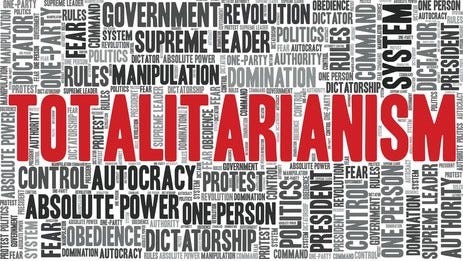



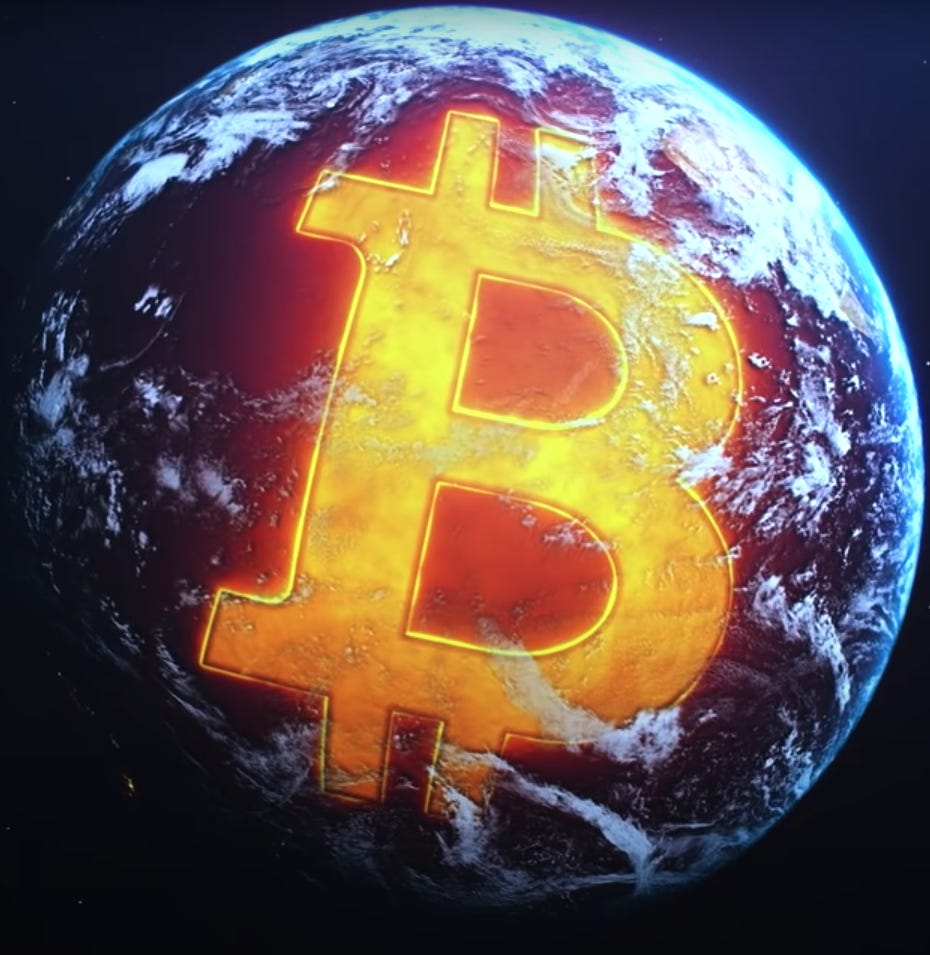
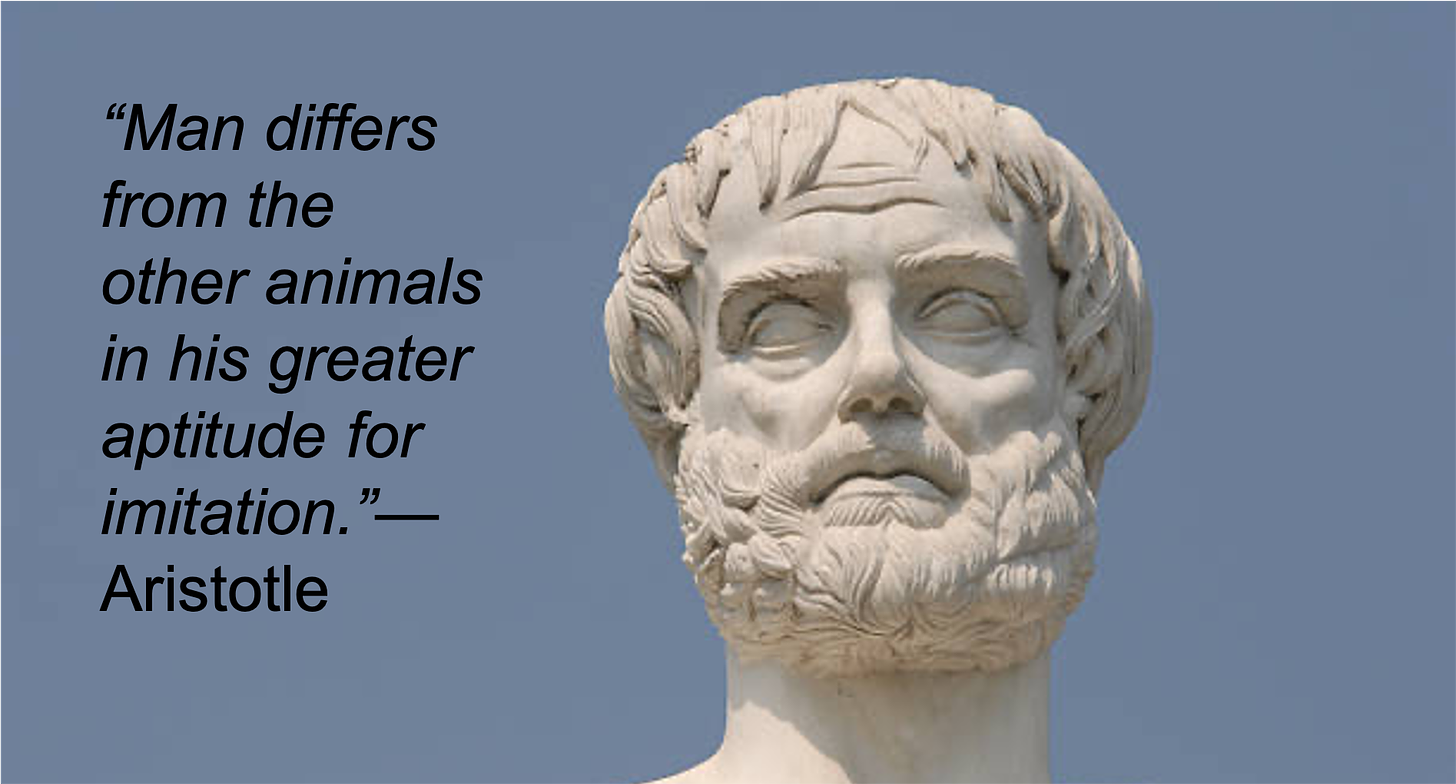


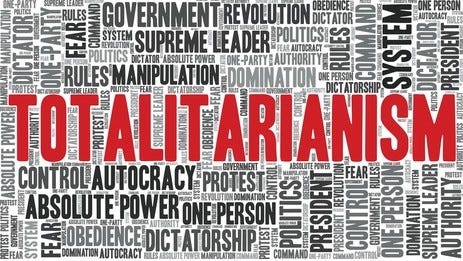
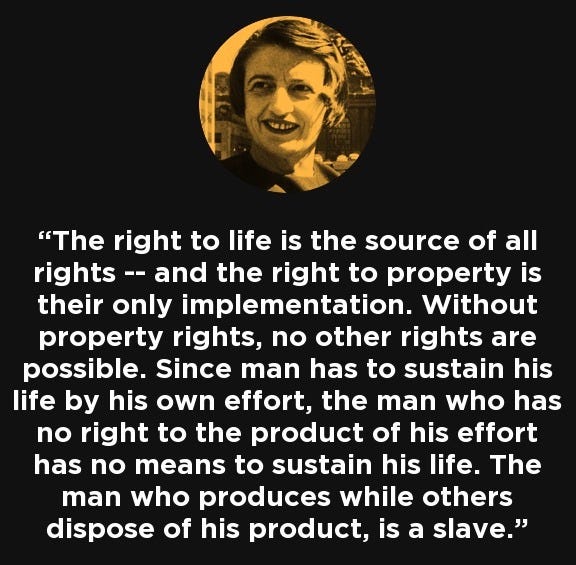




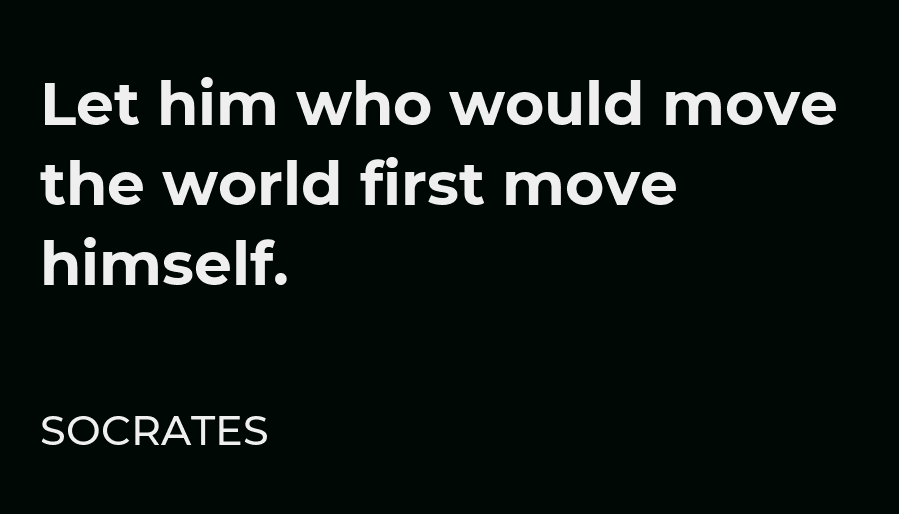



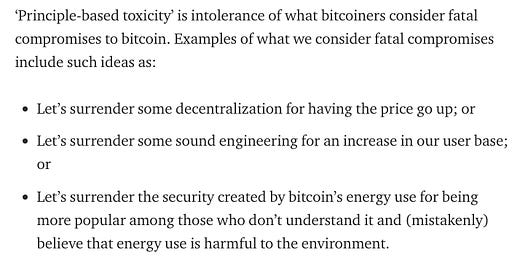





Gracias Robert